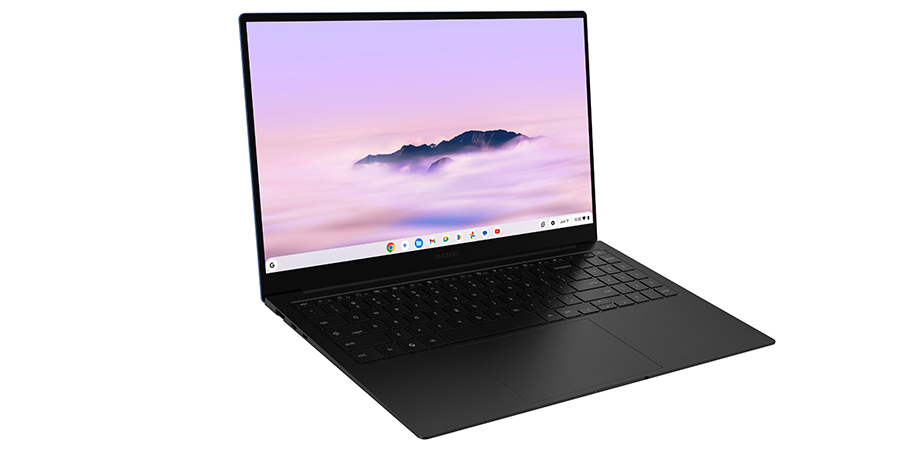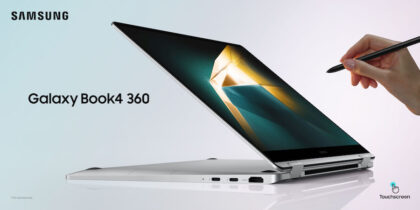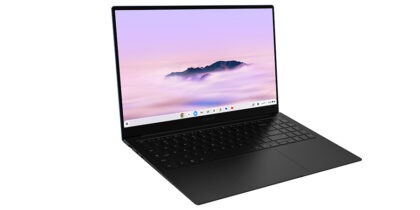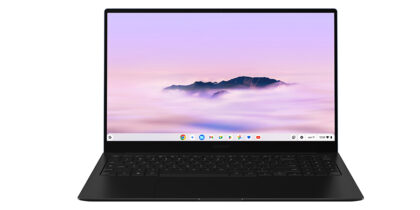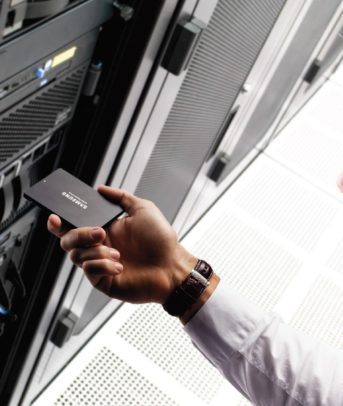For small and mid-sized businesses (SMBs) with a limited IT staff, the cost and complexity of enterprise tech solutions can pose a significant obstacle to success — especially for remote workers. SMBs may struggle to keep up with the demands of managing their employees’ devices at home.
Cloud-based Chromebooks, such as Chromebook Plus, offer a lower-cost alternative to traditional PCs. The Chrome OS-based laptops are simple and cost-effective to deploy, secure and manage. Here’s a look at where those savings come from:
Hardware that’s easy to budget and manage
With Chromebook Plus, businesses can spend less on hardware — and still get performance that matches higher-end laptops. The Chrome OS provides intuitive, easy-to-use tools that boost productivity and require minimal support from IT administrators. For small businesses, those time and cost savings represent resources that can be invested in other productivity tools to give their team a competitive edge.
Where IT budgets are limited, Chromebooks are an accessible solution that meets remote workers’ unique business needs.
Software and licenses at half the cost
Because it’s cloud-based and intrinsically user-friendly, Chromebook Plus helps SMBs make the most of their often scarce IT resources by trimming the expenses around software licensing. Many SMBs transitioning to Chromebooks also adopt Google Workspace, gaining access to a full suite of productivity tools for a low monthly subscription.
With cloud-based security built in, Chromebooks spare you the fees typical of added security measures like antivirus and enterprise mobility management (EMM) solutions. And because Chromebooks update automatically, small business owners can rest assured that their workers’ devices are protected against the latest threats.
Maximized power and speed
Browser-based work helps Chromebooks minimize power consumption, a not-insignificant cost driver for PCs and laptops in larger organizations. Chromebook Plus consumes 46% less energy than comparable competitor devices. It provides up to 13 hours of battery life while supplying twice as much power, speed, memory, and storage compared to the 10 top-selling Chromebooks. These powerful attributes empower SMB teams to do their best work.
Longer life cycle
With the recent surge in remote work, employees rely on their laptops more than ever. However, while the increased usage taxes these devices’ memory and hard drives, few SMBs can afford to regularly replace worn-out devices when they inevitably break down.
Choose the right phone for your growing business
Get your free guide to matching the right smartphone with your business and employee needs. Download Now
ChromeOS devices have a 44% lower three-year operation cost than other popular end-user devices. With ten years of automatic updates, they can stay secure and be used for longer, allowing businesses to save on device replacement costs and eliminate the need to extend warranties and maintenance contracts.
Fewer administrative needs
For many SMBs, Chromebooks’ lower administrative cost is a huge win. Chromebooks offer rigorous security features that minimize the need for IT support and management. Key features include a built-in Google security chip to protect sensitive data and automatic Chrome security updates. Chromebooks’ built-in sandboxing keeps functions separate on the hard drive, so if malware crops up in one program, the problem doesn’t spread to the rest of the system.
Google’s Chrome admin console, available with the Chromebook Enterprise Upgrade, allows companies to manage their Chromebook deployments from a centralized location.
All of these savings can directly benefit SMBs’ bottom line. A recent IDC report shows ChromeOS devices provide a 245% ROI over three years. The report also estimates a three-year total benefit of $3,901 per device, resulting in a 29% efficiency gain for IT security teams.
Powerful, simple to secure, easy to manage, and incomparably user-friendly, Chromebook Plus is an ideal solution for SMBs looking to maximize their limited IT budget.
To take your device upgrade one step further, check out the Chromebook Plus, featuring an immersive AMOLED display, 13-hour battery life Intel® Core™ performance, and built-in AI tools.
Sign up for a Samsung Business Direct account and explore exclusive business pricing, financing and trade-in options and other deals on everything from Chromebooks and laptops to mobile devices and monitors.
